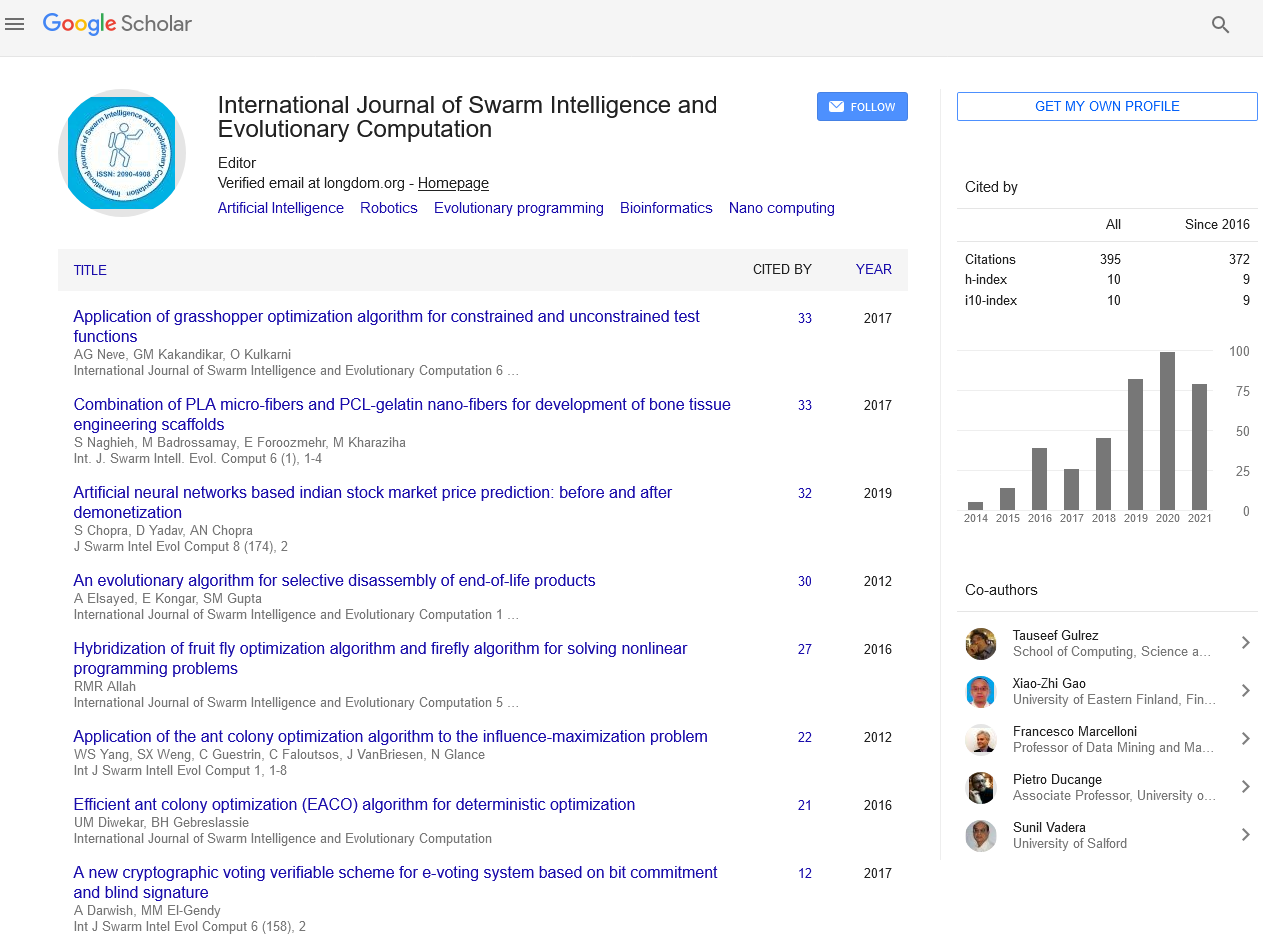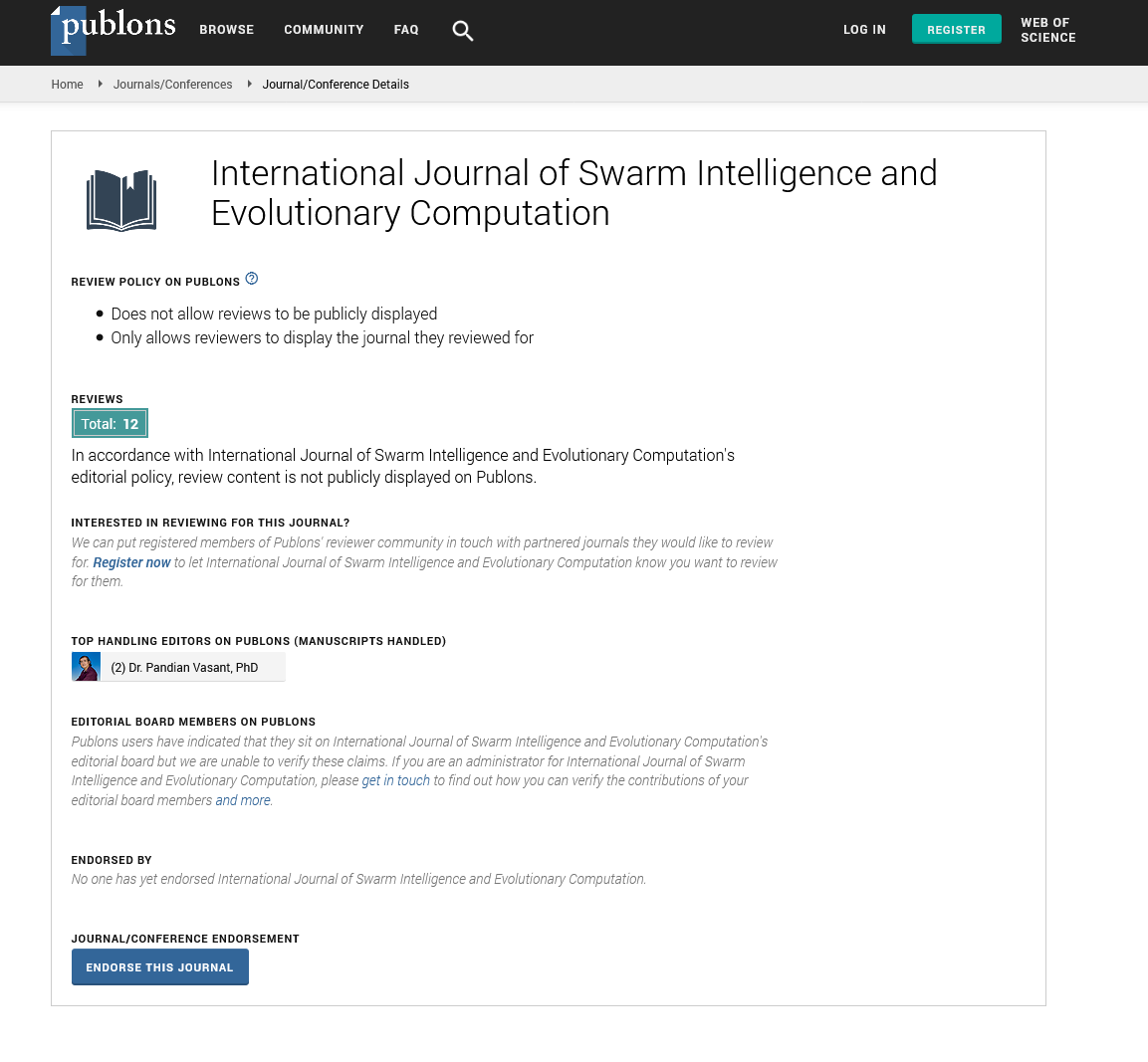Indexed In
- Genamics JournalSeek
- RefSeek
- Hamdard University
- EBSCO A-Z
- OCLC- WorldCat
- Publons
- Euro Pub
- Google Scholar
Useful Links
Share This Page
Journal Flyer

Open Access Journals
- Agri and Aquaculture
- Biochemistry
- Bioinformatics & Systems Biology
- Business & Management
- Chemistry
- Clinical Sciences
- Engineering
- Food & Nutrition
- General Science
- Genetics & Molecular Biology
- Immunology & Microbiology
- Medical Sciences
- Neuroscience & Psychology
- Nursing & Health Care
- Pharmaceutical Sciences
Commentary - (2022) Volume 11, Issue 1
Significance of Virtual Reality in Education
Carlos R. Cunha*Received: 04-Jan-2022, Manuscript No. SIEC-22-235; Editor assigned: 06-Jan-2022, Pre QC No. SIEC-22-235; Reviewed: 20-Jan-2022, QC No. SIEC-22-235; Revised: 25-Jan-2022, Manuscript No. SIEC-22-235; Published: 31-Jan-2022, DOI: 10.35248/2090-4908.22.11.235
Description
Virtual reality (VR) is a simulated experience that can be analogous to or fully different from the real world. Operations of virtual reality include entertainment (particularly videotape games), education (similar as medical or military training) and business (similar as virtual meetings). Other distinct types of VRstyle technology include stoked reality and mixed reality, occasionally appertained to as extended reality.
Presently, standard virtual reality systems use either virtual reality headsets or multi-projected surroundings to induce realistic images, sounds and other sensations that pretend a stoner's physical presence in a virtual terrain. A person using virtual reality outfit is suitable to look around the artificial world, move around in it, and interact with virtual features or particulars. The effect is generally created by VR headsets conforming of a head- mounted display with a small screen in front of the eyes, but can also be created through especially designed apartments with multiple large defences. Virtual reality generally incorporates audio and video feedback, but may also allow other types of sensitive and force feedback through haptic technology.
Virtual reality can ameliorate education by furnishing students with memorable and immersive gests that would else not be possible. VR is accessible to every pupil and can be fluently covered by preceptors. Virtual gests have the power to engage and inspire students in a unique and important way.
We explore what virtual reality is, how it works, ways that it can be used within education, and why VR is perfect for ultramodern literacy surroundings. In a world where technology is a dominant point in our diurnal lives, virtual reality is getting more prominent in a wide range of diligence. What was formerly a rare luxury is now a readily accessible platform that provides immersive gests to people of all periods.
Significance
Virtual Reality creates an artificial environment with software. The artificial environment gets presented to the cult in a way which encourages them to accept and believe it as a real terrain. VR technology creates primary experience fastening on two senses, i.e., vision and sound. VR allows us to bridge the gap between preceptors and learners. With VR, distance literacy tools can put preceptors and scholars together in the same room with digital representations of themselves preceptors can teleport into the VR world and companion scholars through their guests.
Virtual Reality is used in education to enhance pupil engagement with their study. Virtual Reality creates the real world around us. It can transfigure the way of education which is handed currently. It can be also used in industries, medical, security, service, Anti-terrorism, Traffic accidents mindfulness, Weather forecasting, etc.
Benefits of virtual reality in education
• Increase knowledge area
• Active experience rather than just resistant information
• Helps to understand complex generalities, subjects, or propositions
• No distractions while the study
• Boosts scholars creativity
• Expands learner’s effectiveness to gain knowledge
• Increase Interest in boring subjects like wisdom
• Ameliorate the understanding position of scholars
• Ameliorate tutoring chops in preceptors using VR by furnishing a deep position of knowledge.
• Improving memory power by connecting passions with education.
• It takes veritably little time to understand veritably complex motifs.
• Get education as per the book syllabus with its connecting terrain and practical.
• Fun, Virtual stint, and being game- grounded education.
• Ameliorate a Pupil’s Imagination power.
Citation: Cunha CR (2022) Significance of Virtual Reality in Education. Int J Swarm Evol Comput. 11:235
Copyright: © 2022 Cunha CR. This is an open-access article distributed under the terms of the Creative Commons Attribution License, which permits unrestricted use, distribution, and reproduction in any medium, provided the original author and source are credited.


